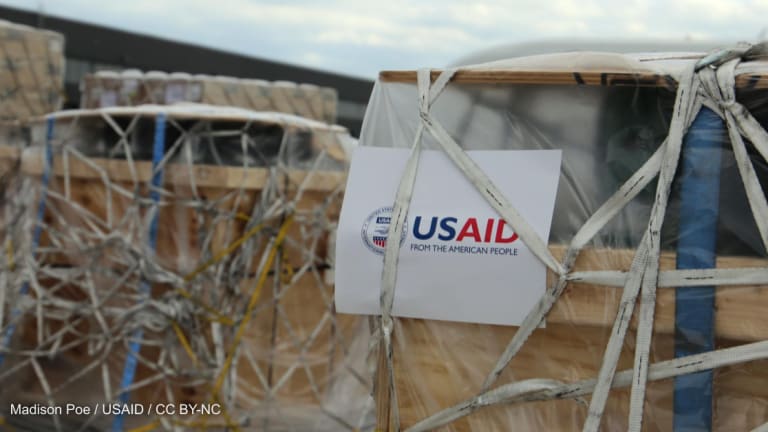
The United States needs to overhaul the way it awards, manages and oversees contracts for contingency operations in warzones, an independent panel tasked to asses U.S. wartime contracting practices says in the final report it submitted to the U.S. Congress.
The Commission on Wartime Contracting notes in the report, dubbed “Transforming Wartime Contracting: Controlling Costs, Reducing Risks,” that the United States has lost between $31 billion and $60 billion to waste and fraud in the contingency and reconstruction programs of the U.S. Departments of Defense and State and the U.S. Agency for International Development in Iraq and Afghanistan.
The report was submitted to Congress as a special joint congressional committee tries to identify savings in the U.S. federal budget. Christopher Shays, co-chairperson of the wartime contracting commission, has urged the joint committee to consider some of the report’s recommendations, arguing it would be “failure” not to do so.
The report outlines 15 strategic recommendations to address what it says are the shortcomings of current U.S. wartime contracting practices. These shortcomings include overreliance on contractors, vague contract requirements, duplicative work, lack of or inadequate competition in the contracting process, and poor oversight in the field. A lot of reconstruction and contingency projects implemented by the U.S. in Iraq and Afghanistan are also unsustainable, the report further notes.
“Unless changes are made, continued waste and fraud will undercut the effectiveness of money spent in future operations, whether they involve hostile threats overseas or national emergencies here at home requiring military participation and interagency response,” the report says. “Responsibility for this state of affairs lies with Congress, the White House, federal departments, the military services, agency leadership, contractors, and individuals who abuse the system.”
The report seeks improvements in interagency coordination, a reduction in the use of private security contractors and strengthening of enforcement tools such as suspension and disbarment. The report also recommends appointing a dedicated inspector general for U.S. contingency operations and creating a senior government position to improve oversight, planning and coordination.
The Professional Services Council, however, notes some points the report did not address.
“The commission’s main conclusions and recommendations overlook the messy realities of contingency operations in the misplaced hope that shortening contract performance periods and shunning pre-positioned supply vehicles will somehow eliminate the inherent uncertainties and risks of wartime contracting,” the PSC said.
Read more:
Read more on U.S. aid reform online, and subscribe to The Development Newswire to receive top international development headlines from the world’s leading donors, news sources and opinion leaders — emailed to you FREE every business day.




